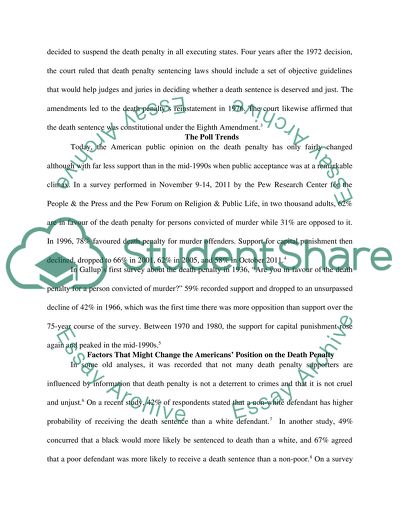Cite this document
(“The Death Penalty, the American Public Opinion, and the Factors Essay”, n.d.)
Retrieved from https://studentshare.org/english/1490761-the-death-penalty-the-american-public-opinion-and-the-factors-affecting-the-americans-position-on-the-death-penalty
Retrieved from https://studentshare.org/english/1490761-the-death-penalty-the-american-public-opinion-and-the-factors-affecting-the-americans-position-on-the-death-penalty
(The Death Penalty, the American Public Opinion, and the Factors Essay)
https://studentshare.org/english/1490761-the-death-penalty-the-american-public-opinion-and-the-factors-affecting-the-americans-position-on-the-death-penalty.
https://studentshare.org/english/1490761-the-death-penalty-the-american-public-opinion-and-the-factors-affecting-the-americans-position-on-the-death-penalty.
“The Death Penalty, the American Public Opinion, and the Factors Essay”, n.d. https://studentshare.org/english/1490761-the-death-penalty-the-american-public-opinion-and-the-factors-affecting-the-americans-position-on-the-death-penalty.


